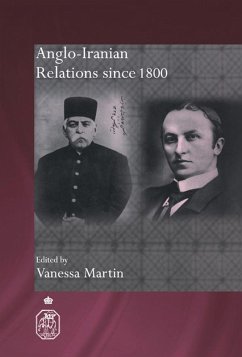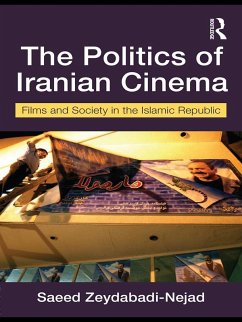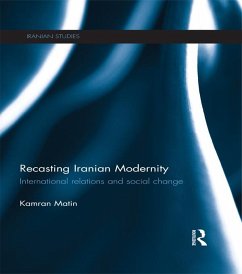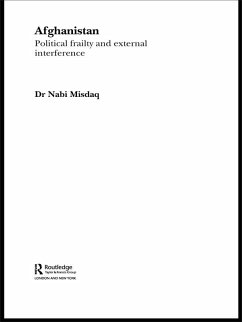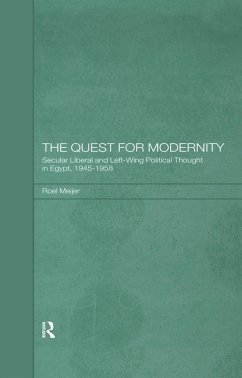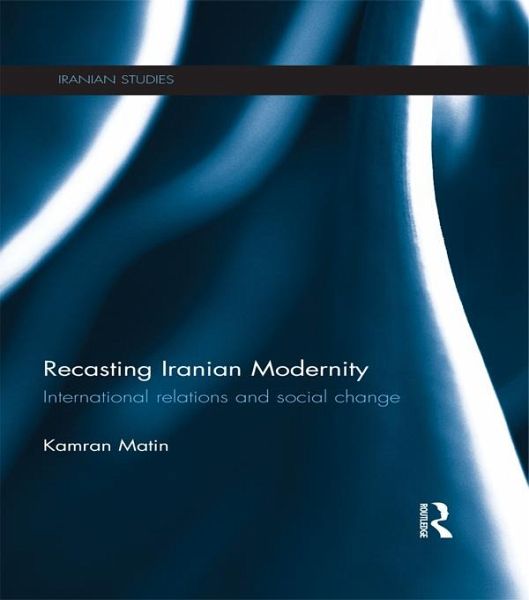
Recasting Iranian Modernity (eBook, ePUB)
International Relations and Social Change
Versandkostenfrei!
Sofort per Download lieferbar
49,95 €
inkl. MwSt.
Weitere Ausgaben:

PAYBACK Punkte
25 °P sammeln!
Critically deploying the idea of uneven and combined development this book provides a novel non-Eurocentric account of Iran's experience of modernity and revolution. Recasting Iranian Modernity presents the argument that Eurocentrism can be decisively overcome through a social theory that has international relations at its ontological core. This will enable a conception of history in which there is an intrinsic international dimension to social change that prevents historical repetition.This hitherto under-theorized international dimension is, the book argues, manifest in combined patterns of ...
Critically deploying the idea of uneven and combined development this book provides a novel non-Eurocentric account of Iran's experience of modernity and revolution. Recasting Iranian Modernity presents the argument that Eurocentrism can be decisively overcome through a social theory that has international relations at its ontological core. This will enable a conception of history in which there is an intrinsic international dimension to social change that prevents historical repetition.
This hitherto under-theorized international dimension is, the book argues, manifest in combined patterns of development, which incorporate both foreign and native forms. It is the tension-prone and unstable nature of these hybrid developmental patterns that mark Iranian modernity, and fuelled the socio-political dynamics of the 1979 revolution and the rise of political Islam.
Challenging solely comparative approaches to the Iranian Revolution that explain it away as either a deviation from, or a reaction to, modernity on the grounds of its religious form, this book will be valuable to those interested in an alternative theoretical approach to the Iranian Revolution, modern Iran and political Islam, working in the fields of International Relations, Middle East and Islamic Studies, History, Political Science, Political Sociology, Postcolonialism, and Comparative Politics.
This hitherto under-theorized international dimension is, the book argues, manifest in combined patterns of development, which incorporate both foreign and native forms. It is the tension-prone and unstable nature of these hybrid developmental patterns that mark Iranian modernity, and fuelled the socio-political dynamics of the 1979 revolution and the rise of political Islam.
Challenging solely comparative approaches to the Iranian Revolution that explain it away as either a deviation from, or a reaction to, modernity on the grounds of its religious form, this book will be valuable to those interested in an alternative theoretical approach to the Iranian Revolution, modern Iran and political Islam, working in the fields of International Relations, Middle East and Islamic Studies, History, Political Science, Political Sociology, Postcolonialism, and Comparative Politics.
Dieser Download kann aus rechtlichen Gründen nur mit Rechnungsadresse in A, B, BG, CY, CZ, D, DK, EW, E, FIN, F, GR, HR, H, IRL, I, LT, L, LR, M, NL, PL, P, R, S, SLO, SK ausgeliefert werden.




